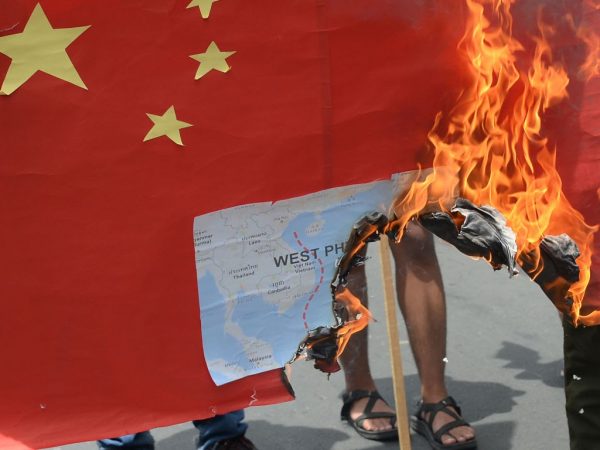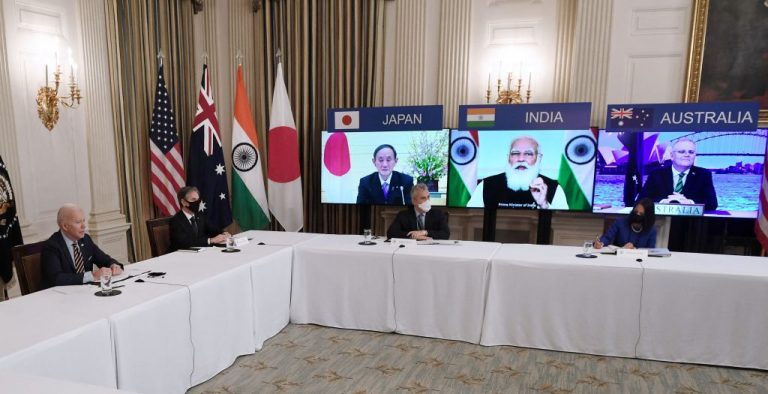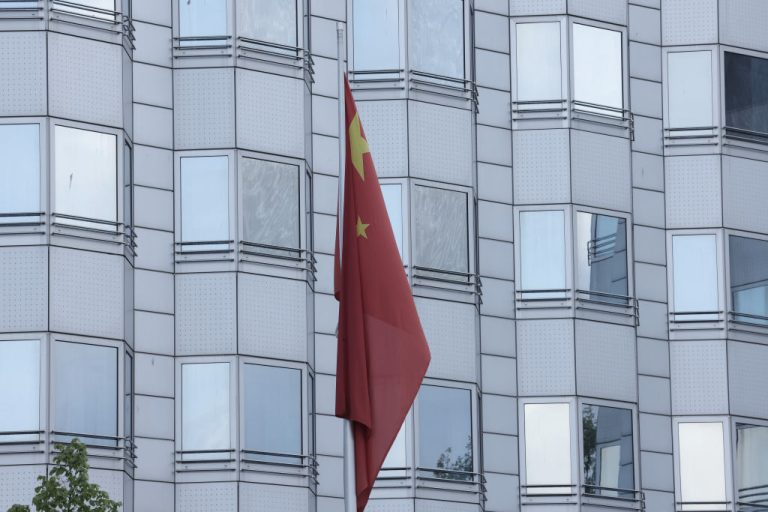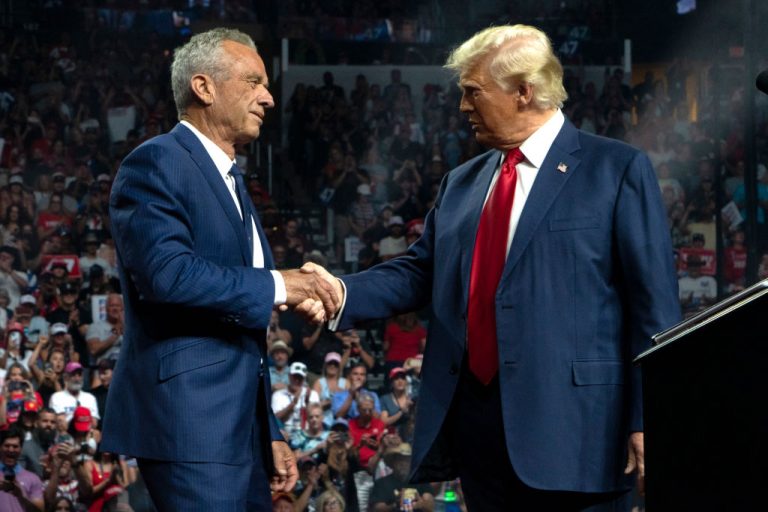Leaders of Australia, Japan, India, and the United States met for the Quad Summit, an unofficial alliance between the four countries, in a virtual teleconference on March 12.
U.S. President Joe Biden and Secretary of State Antony Blinken attended the Summit and were joined by Australian Prime Minister Scott Morrison, India’s Prime Minister Narendra Modi, and Japan’s Prime Minister Yoshihide Suga.
This year’s virtual Quad Summit marked the first meeting between the current leaders of the alliance’s member states. The Quad convened previously in New York in 2019 and again on October 6, 2020, when Secretary of State Mike Pompeo met with his counterparts to discuss security in the Asia-Pacific region, with a heavy emphasis on handling growing aggression from the People’s Republic of China (PRC).
During the October meeting, Pompeo said in a talk radio interview, “We have begun to build out a set of relationships all throughout Asia that are enabling us to challenge the Chinese Communist Party…And one of the tools that we use is this set of relationships with four powerful democracies.”
The Quad was originally formed in 2007 under the Obama administration with the goal of forming an alliance in the region in response to Communist China’s growing economic influence and military strength. The idea never really got off the ground then, but was brought back in 2017 by President Donald Trump as the trade war with Beijing started to come to life.

Success
You are now signed up for our newsletter
Success
Check your email to complete sign up
In an interview with Nikkei, when Pompeo was asked specifically about recent CCP aggression toward Taiwan, Pompeo made the Trump administration’s position clear: “Appeasement is not the answer,” he said.
“If one bends the knee each time the Chinese Communist Party takes action around the world, one will find themselves having to bend the knee with great frequency. So we have pushed back in a serious way with my diplomatic counterparts.”
Quad Summit winds change direction under Biden
Under the Biden and Blinken administration, however, the Quad Summit took a notably different tone and direction from that of the Trump and Pompeo administration. A Joint Statement issued by the leaders entitled “The Spirit of the Quad” made no mention whatsoever of either China or the CCP. Instead, the statement said the group was formed after the 2004 Indonesia tsunami disaster and focused rather on, “the global devastation wrought by COVID-19, the threat of climate change, and security challenges facing the region,” which “summon us with renewed purpose.”
The Joint Statement called the pandemic, climate change, humanitarian aid, counterterrorism, infrastructure investment and disaster relief “the most urgent of global challenges,” and heavily emphasized vaccine diplomacy among the four countries in conjunction with cooperation with the CCP friendly World Health Organization (WHO).
Quad leaders committed to meeting in person by the end of 2021 and pledged to have their foreign ministers meet at least once per year.
In a Quad Summit Fact Sheet released by the White House, the group was excited to emphasize “The Quad Vaccine Partnership,” which will engage the WHO on the basis of its Emergency Use Listing authorizations for the SARS-CoV-2 vaccines, which are otherwise still in clinical trials and have not been approved for anything except emergency use.
In the Fact Sheet, the White House notes that the U.S. has pledged to produce 1 billion doses of vaccine, which will include the Johnson & Johnson adenovirus vector vaccine variant, by the end of 2022; Japan will issue loans to India to expand vaccine manufacturing for export; and Australia will emphasize vaccine drives in developing nations in Southeast Asia and the Pacific Islands. The alliance will also establish a “senior-level Quad Vaccine Experts Group, comprised of top scientists and officials from our governments” to establish a framework and plan to push a global vaccination schematic.
In addition, the Quad Summit will establish a Climate Working Group, which aims “to strengthen implementation of the Paris Agreement, including to keep a Paris-aligned temperature limit within reach,” as well as promote low emissions technologies, “climate mitigation,” and “climate finance.”
Quad Summit principles are also establishing a Critical and Emerging Technology Working Group saying a “free, open, inclusive, and resilient Indo-Pacific requires that critical and emerging technology is governed and operates according to shared interests and values.”
The Fact Sheet describes this section in very vague terms, alluding to a statement of shared principles, standards development, telecommunications installations “through close cooperation with our private sectors and industry” and “monitor trends and opportunities related to developments in critical and emerging technology, including biotechnology,” and supply chain concerns.
Follow us on Twitter or subscribe to our email list







